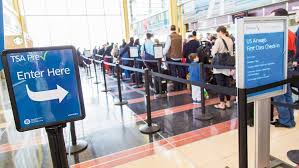One of the realities of the post-9/11 security world is trying to distinguish signal from noise in the voluminous amount of information that government, at all levels, collects to try to keep Americans safe. We now have far more ways to gather far more information far more effectively than ever before. Why? Because of changes in technology and how we present, transmit and archive information. The fly in the ointment is whether we can separate the actual signals buried in all that noise of information.

(Courtesy photo)
Since 9/11 a lot of the proposed solutions have been a type of security alchemy. Alchemy was the transmutation of base materials into something valuable. The best example: turning lead, a base metal, into gold is the best example of alchemy. The transformation of lead into gold was to be accomplished by touching the lead to the philosopher’s stone, which would serve as the catalyst for the transmutation.
Regarding analyzing the massive amounts of information that we gather, the analogy is quite simple. If we can just bring the information (the base metal) into contact with the right technology (the philosopher’s stone), the resulting analysis will provide us with the necessary information or solution we need (gold). As a result, and regardless of whether it is Open Source or Human Intelligence, or any of the varieties of Signals, Electronic or Geospatial-Intelligence, one of the primary pursuits of security professionals are better tools. Whether the tool is software or hardware, it allows us to make sense of all this information and makes that information useful and usable.
This week Federal Judge Anthony J. Trenga of the United States District Court in the Eastern District of Virginia ruled that one of these tools has significant constitutional problems. Specifically, Trenga ruled that the Terrorism Screening Database, both how it is compiled and how it is used, violates the due process rights of American citizens regarding domestic and international travel. As well as their personal and professional reputations.
Trenga did not order a specific remedy. Instead, he ordered both the U.S. government and the plaintiffs in the suit to brief him on the question of what kind of federal watch list — and how it would be used — would not be a constitutional burden on American’s due process rights.
The ruling is important as it focuses on information: specifically how to separate signal from noise, to get our attention. The no-fly list that the federal government has created and uses to protect air travel in the U.S. is derived from the larger Terrorism Screening Database. So this ruling will likely have some effects on how the no-fly list is compiled, and how it is used. That is probably a good thing.
Trenga recognized one of the significant problems with these lists in his ruling is that it is tough to confirm if you are on it until you are either subjected to repeated, extensive screening when traveling. This could prevent you from reentering the U.S. when one has traveled abroad, even if one is a U.S. citizen, and/or be prevented from flying domestically. Often there are false positives, which has led to what is called the flying while “David Nelson effect.” David Nelson, the former child television star and son of Ozzie and Harriett Nelson, was long subjected to enhanced screening when trying to travel. Apparently, someone named “David Nelson” is on the list. The late Sen. Ted Kennedy, as well as conservative commentator Stephen Hayes were both, at one time, on one of these watch lists.
In January 2003, I had an airline ticketing agent threaten to have me placed on this watch list, and have me arrested because the early model, self-check-in machine would not work with my ticket. It would not work because I had not purchased my own ticket. The U.S. Military Academy had purchased my ticket. I was traveling on invitational travel orders (ITOs) issued above the signature of the superintendent, a three-star general. I was going to West Point to give a talk on terrorism and counter-terrorism.
Needless to say, once the ITOs came out, and a supervisor saw them, everything sorted itself out quickly, and I proceeded up to the point where this became the opening anecdote of my talk. Whether the ticketing agent actually could have had me placed on one of the watch lists was immaterial, the threat was intended to force my compliance.
The false-positive problem, or, perhaps, even worse, the inclusion of people on the database list based on less than legitimate reasons, is at the heart of Trenga’s ruling. A name may go into the database, but the person will never be notified. Only learning of inclusion by inference as a result of repeated, additional screenings, or by being denied the ability to travel by plane. And the process for getting off the list, despite Federal court-ordered reform, is still opaque and not particularly user-friendly.
Be skeptical when you see reports about newer, better screening methods, such as the search for better lie detection technology to keep us all safe or make us safer. That the technology could be the promised modern equivalent of the philosopher’s stone, which will turn the base materials of information into security gold. Developing new tools and methods to secure ourselves is essential, but it does us no good if that security comes at the price of our civil rights and liberties.






Recent Comments